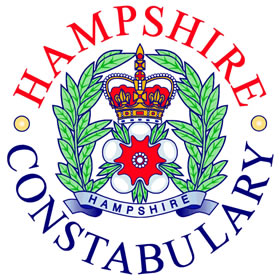FIRST CONTACT

Hi, my name is Jane. I have been part of the contact management team at Hampshire Constabulary for the past eight years. I love my job.
It is tricky to describe a typical day in Contact Management; during the ten-hour shift, the sheer variety of calls and emails passed to us means that no two days are ever the same.
The extensive training we receive – firstly the first five weeks in a classroom, and then 12 months with a one-to-one mentor – really sets you up to try and tackle anything.
The shift patterns we work mean that our start times are staggered through the day. The first shift starts at 07.00, the last shift finishes at 07.00. It takes a bit of getting used to, driving home when others are yet to start, and trying to sleep during the day. But an hour-long meal break offers us the chance to recharge.
Our team of up to 30 per shift take both emergency and non-emergency calls, with the majority being made through the 101 system. This means that calls range from the mundane to the macabre, taking a crime report for a stolen recycling bin one minute and then dealing with a crash on the motorway the next. We reassure callers, while extracting vital information and sending this concisely to the control room.
Calltakers are responsible for making the first decisions on incoming calls; should we send officers out, can this be resolved by phone, or do we need more information? We have access to historical records, intelligence reports and vast amounts of information, and use these to make time-critical decisions while still speaking to the caller. Multi-tasking is an essential part of the role.

Calls can take a few seconds, or more than an hour for a detailed report. The information we take can be used in court proceedings, and is used by officers to make risk assessments.
Social media and the internet are increasingly used by members of the public to report crimes and pass messages. Experienced calltakers are given time off the phone to deal with emails from other forces, such as arrest requests, information sharing and appeals for missing people.
Every decision we make has an impact somewhere, every call matters to someone. We go from agony aunt to social worker to investigator in a matter of minutes, sometimes on the same call. Thankfully we do get great back up, our supervisors are always on hand if we need them, we have great support staff networks, and if really needed our employee support is 24/7.
Every call will require knowledge of force policy and procedure as well as legal knowledge, common sense and the National Decision Making model to ensure that we give the best service to our callers.
By the end of your shift with your team, you all log off the systems and prepare to leave knowing that you have been part of something. You may have been sworn at, shouted at or even saved a life but know that you have made a difference.
Why?
Many of the callers have not had to call police before and to give them support, and to listen to them, will often make all the difference to their lives. Some days and some calls are harder than others but those are the days that make you realise you are making a difference to those vulnerable callers and victims of crime.
Contact Management Centre
The Contact Management Centre (CMC) is currently based at Southampton Central Police Station.
A typical day for CMC staff can involve:
- dealing with non-emergency calls;
- dealing with 999 calls from the public;
- creating incidents from which a police deployment is made;
- dealing with crime calls and complete crime reports;
- updating existing crime reports;
- answer and deal with online contact;
- offering advice to the public on points of law and answering general enquiries; and
- monitoring and updating the Force Facebook and Twitter accounts.
Police Control Room
The Police Control Room (PCR) is based in the Vickery Building at Netley.
There are separate desks controlling the different areas around the county, and an area of desks for call takers.
A typical day for PCR staff can involve:
- dealing with 999 calls from the public and other emergency services;
- dealing with non-emergency calls;
- creating incidents from which a police deployment is made;
- liaising with other emergency services;
- prioritising incidents and deploying appropriate police resources to attend;
- maintaining accurate incident logs in a fast paced environment;
- updating existing crime reports; and
- offering advice to the public on points of law and answering general enquiries.
Salary
You will start at the bottom increment of Scale 4 £20,115 per annum plus a shift allowance up to 20% (dependent on hours worked) and weekend enhancement.
During your first 12 months you will be expected to satisfy a number of criteria:
- completion of the Individual Learning Plan and Review (ILP&R), which is a structured training record;
- satisfactory attendance; and
- attainment of local working standards.
Once you have satisfied all the above you will move to the bottom of scale 5 £22,668 per annum plus up to 20% shift allowance and weekend enhancement, with further yearly increments until top of pay scale.
This usually takes 12 months although can take longer if the above criteria are not met.
Annual Leave
Initially you are entitled to 23 days annual leave and this rises to 27 days after 5 years of service. There is a maximum of 4 or 5 people on any one shift off at any one time (depending on department). Summer and Christmas leave is dealt with slightly differently due to the demand on the service over these periods.
Training
You will be employed under an apprenticeship scheme (salary still the same) unless you have prior experience in emergency service contact handling, where the training will be the same but not under the apprenticeship.
During your initial training period you will not be able to take any leave, as this is a crucial point in your career and it is not always possible to cover any missed material. If you have holiday booked which coincides with your training dates, please inform us and we will offer an alternative course/start date.
Your initial training period lasts 11 weeks, with the first 5 weeks being classroom based. Training is carried out at both sites – you will be advised upon notification of course dates where your course is being held. Subject to change.
Pension
This is optional – minimum contribution is 6% of your salary, deducted at source.
Flexible Working
Staff can apply for flexible working after their training has finished and they are “signed off” (approx 11 weeks). Staff would need to work full time hours whilst in training and during the period of consolidation of learning after their initial training.
www.hampshire.police.uk/car/careers/

